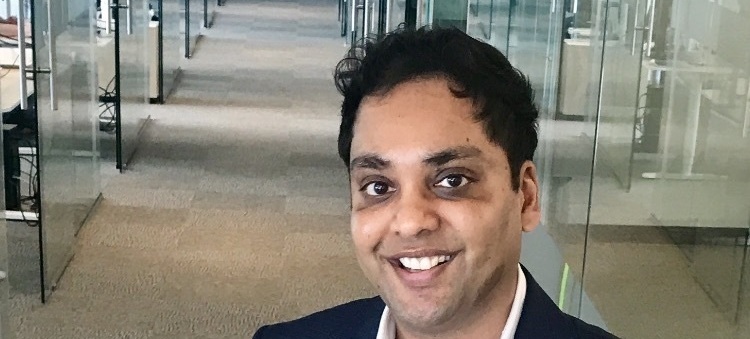In 2005 when Amit Gupta founded Solido Design Automation (Solido), an electronic design automation (EDA) software company specializing in electronic chip development, the Saskatchewan tech sector was on the cusp of its evolution.
Discussions about the economic potential of the province’s tech sector were solidifying, current tech stalwarts like Vendasta and 7shifts were years away from being founded, and Innovation Saskatchewan (IS) programs that bolster the province’s innovation ecosystem, like the Saskatchewan Technology Startup Incentive (STSI), did not exist yet.
Even electronic chip transistors measured in at an enormous 90 nanometers at that time compared to the current microscopic 2 nanometer standard.
However, Gupta, who graduated from the University of Saskatchewan with degrees in electrical engineering and computer science, saw the burgeoning investment community in the province and the potential of the sector and committed to staying in Saskatchewan to grow both his company and the ecosystem here.
“I could have located Solido anywhere, but the access to talent, venture capital and space, like Innovation Saskatchewan’s research and technology parks, made Saskatoon the right choice,” said Gupta.
Gupta raised over $20 million in venture capital and government funding from Golden Opportunities, BDC Capital, National Research Council, and Western Economic Diversification.
Solido started with two people in a 200 square-foot office in the Concourse building, located in the Saskatoon park, with a primary focus on automating the chip design process. In the highly competitive electronic design automation field, Solido’s differentiated software enabled their customers to design better chips faster, skyrocketing the adoption and proliferation of its software worldwide.
“What we pioneered back then was using artificial intelligence to provide a disruptive advantage in our software to design better performing chips,” said Gupta. “Our software makes the chips perform better, consume less battery power, and are smaller in size and that’s a big advantage for our customers.”
Its innovative software fueled Solido’s exponential growth at a rate of approximately 50-70% per year since 2012 up until it was acquired in 2017 by Siemens, a massive European conglomerate, and the company formally renamed Siemens EDA.
Since being acquired, Siemens EDA in Saskatoon has grown its annual revenue by more than 10X and is the largest tech company in the province, helping diversify the Saskatchewan economy beyond its traditional sectors and create new economic drivers for the province.
Amit Gupta, now Siemens EDA vice president, credits the success of Siemens EDA in Saskatoon to a combination of great technology and the unique advantages of the province, like access to talent at world-class post-secondary institutions and the adaptability of Innovation Saskatchewan parks to support emerging and scaling companies. “The parks are a very good place to start a technology company and provide the flexibility and agility companies need.”
As a result of this success, Siemens EDA has expanded its current office in the Saskatoon park to over 40,000 square feet and is ready to continue scaling. The company is aiming to double its current team size of electrical and computer engineers, computer scientists, and mathematicians, and is focused on recruiting both local and global talent interested in working on the bleeding-edge of new tech for top companies worldwide.
“The work that we’re doing is unique for Saskatchewan. Our customers are the largest technology companies in the world and there’s real opportunity here for our team to create impacting software that makes a big difference,” says Gupta. Siemens EDA software is used to make the chips that go into most modern electronic devices like smartphones, smart watches, tablets, laptops, PCs, cars and more.
Siemens EDA’s impact on the province goes far beyond its sizable economic contributions and innovative work.
It has had a major hand in cultivating Saskatchewan’s dynamic innovation ecosystem and is a shining example of the success possible for emerging companies in this landscape. Gupta wants Siemens EDA to remain a leader in and champion for the province and hopes to help companies reach new levels of success possible in Saskatchewan.
“From Solido to Siemens EDA, a lot of companies might have scaled back within the province, but Siemens is committed to Saskatchewan, expanding our team here that is helping fuel economic diversification and growth of this province,” said Gupta.


